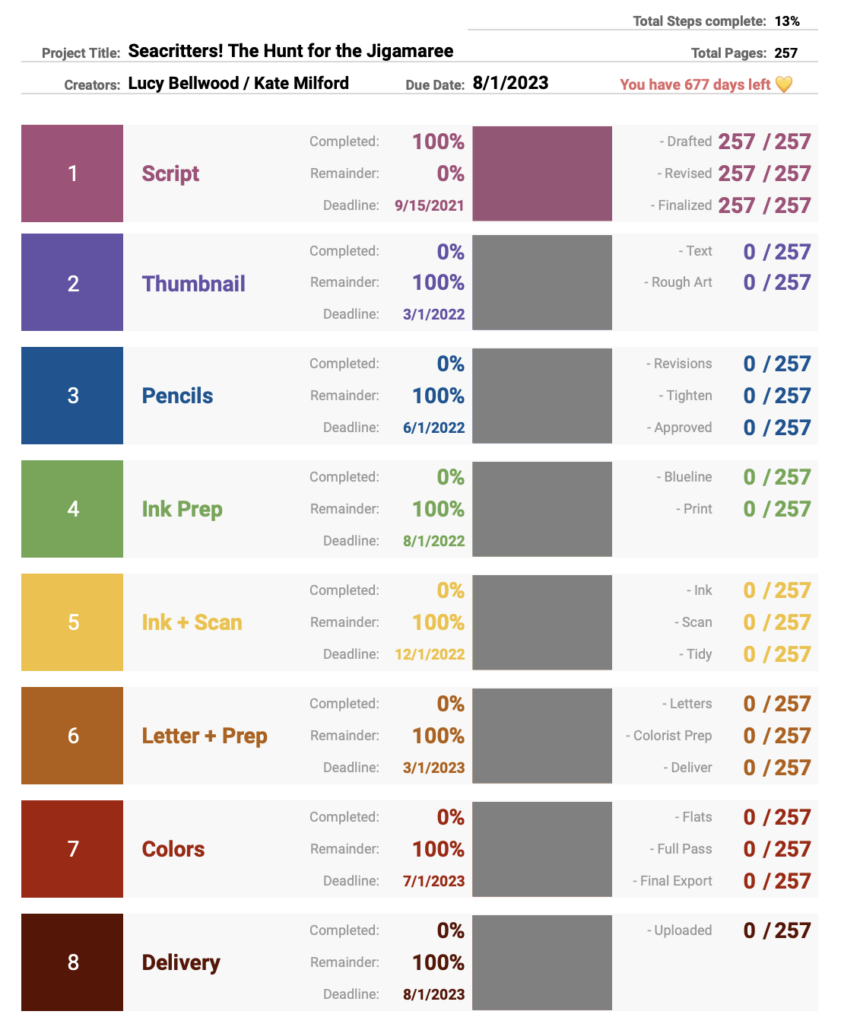(Sidebar: Audra just co-launched a new nonfiction comics outfit called Crucial Comix with one of my very favorite human beings, Shay Mirk.)
Tag: Comics
A month ago, encouraged by this wonderfully clear explainer comic from Maia Kobabe, I bought an eSim for someone in Gaza via Connecting Humanity. Like Maia, mine took a while to get assigned and activated, but this morning IT HAPPENED.
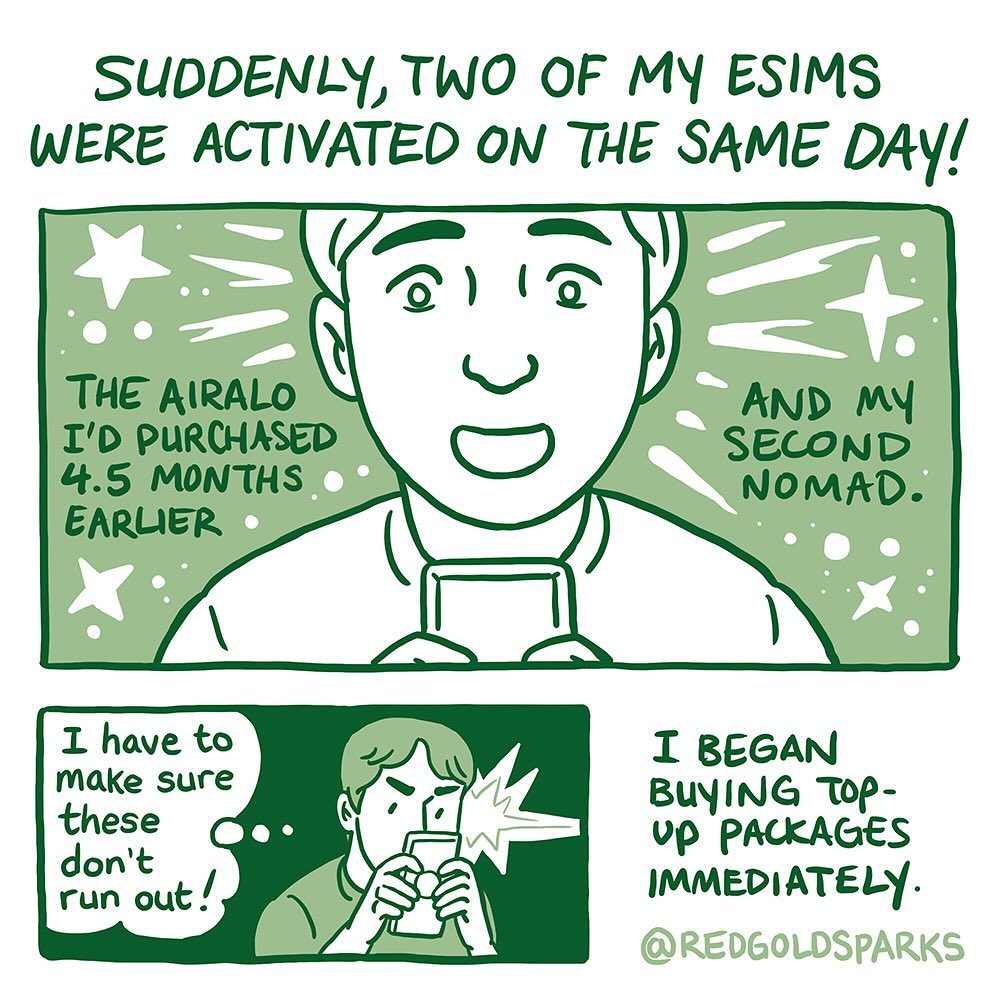
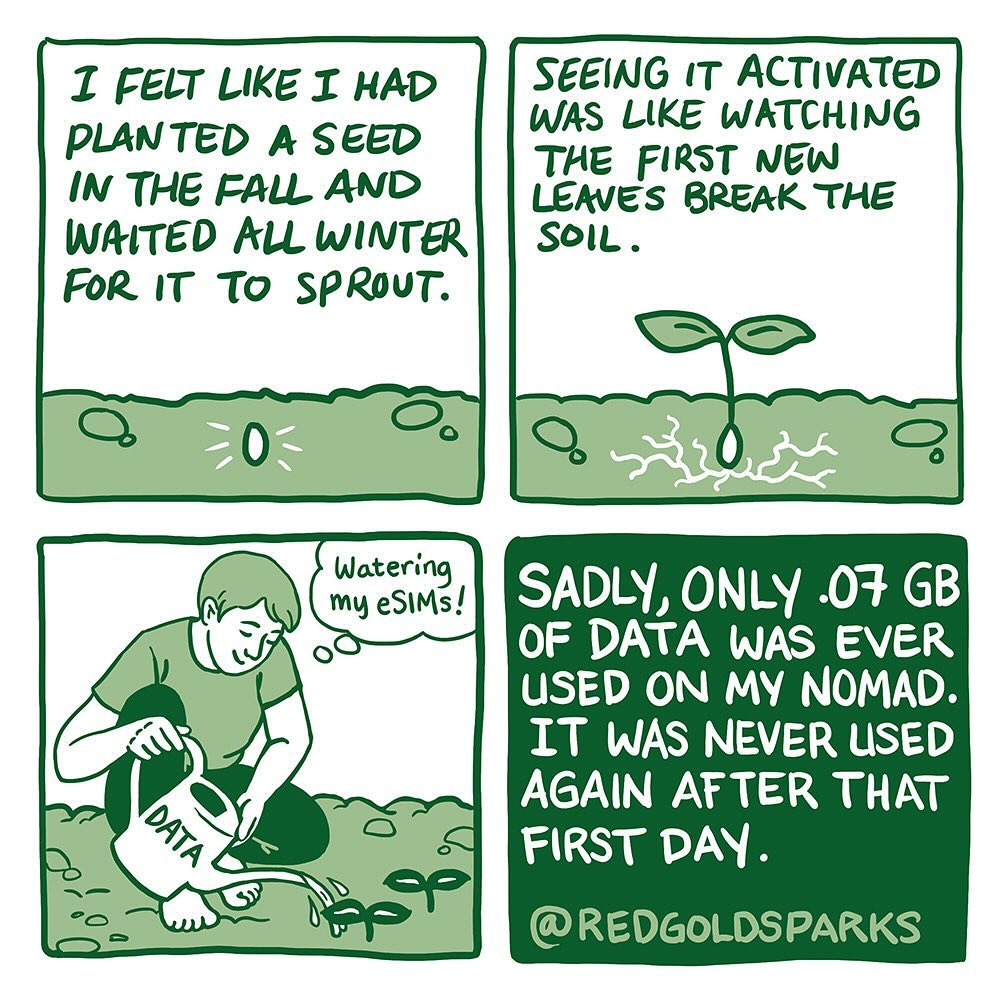
I try to pay a lot of attention to how taking various actions makes me feel. Not because activism shouldn’t include things that are difficult or painful, but because I’m a human creature and I know that I gravitate towards things that bring me pleasure or fulfillment. If I can embody my values in a way that’s rewarding, I’m going to be far more effective in my work. I see this in the people I admire: a kind of joyous integrity that drives fundraisers and community events, art projects and experiments.
The feeling I got seeing that eSIM activated and streaming data was very similar to what Maia describes in her comic. A burst of hope! A jolt of delight! The understanding that a stranger across the world, in unimaginably horrifying circumstances, has the chance to reach out and be heard—to connect.
In a season where everything about the internet feels poisoned, I’m reminded that data can mean hearing a loved one’s voice, subscribing to updates from emergency personnel, letting your children distract themselves with a cartoon on YouTube, or sharing the lived reality of life in a war zone. These are all means of spiritual and physical survival, and we can gift them to others.
If you feel moved to give it a go yourself, there’s an ongoing 5% discount code for Nomad Middle East eSims (NOMADCNG) and I have a personal code for 25% off (LUCYUADYUW) anyone’s first order. The full instructions for purchasing and donating eSims can be found on Connecting Humanity’s eSim page.
(Enormous respect to Mirna El Helbawi, the organizing force behind Connecting Humanity and Maia Kobabe, for always sharing such clear and humanizing comics. The title of this post comes from a chapter about the internet in Dan Nott’s fantastic book Hidden Systems.)
Back in 2016 I had the pleasure of working on a piece for The Nib about renewed efforts to bring wind-powered shipping to the international trade scene. I chatted with a handful of passionate, fascinating people and just got to scratch the surface of what was happening at the time. Somewhere in the years that followed, between multiple changes in hosting and ownership, the comic disappeared from The Nib’s archives, so I’m re-posting it here on my own site to make sure it stays up for future readers to investigate.
(I’m still mucking around with the best way to format this kind of thing for my own site, but this’ll do for now. You can use the arrows to scroll through thumbnails, or click the image to read in a bigger carousel viewer.)
Two lovely pieces of feedback on the blog in very different mediums recently: a tiny, encouraging email from Rob right after my last entry and the sweetest postcard from Piper that arrived in my PO box sometime in June (but given the way life’s been going I didn’t manage to stop by and discover it until well into July).
Maybe it’s because blogging is often a much quieter affair than posting on social media, but I love these little blips and boops of connection. They hit harder than comments and likes and reblogs. They feel more personal. They remind me to reach out and email people (or write them a card!) when their work strikes a chord.
I had cause to do this recently with Ursula Vernon, whose work I’ve been following since I was in middle school. She’s been sharing some very vulnerable comics about dealing with breast cancer and I thought “My god, if not now, when?” It’s been over TWENTY YEARS and I’ve never taken the time to tell this person how much discovering her website and her comics and her delightfully eccentric illustrations meant to me as a weird tween without a lot of artistic friends. It’s an impossible gift when someone’s been a fixed point in your creative community for that long.
It reminds me that even if social media is crumbling around us, people can endure. The impressions we make on one another outlast the silos and the buyouts and the implosions.
But it’s good to come out and say so every once in a while.
The Terra Nova Expedition is the Millennials’ polar expedition. We’ve worked really hard, we’ve done everything we were supposed to, we made what appeared to be the right decisions at the time, and we’re still losing. Nothing in the mythology we’ve been fed has prepared us for this. No amount of positive attitude is going to change it. We have all the aphorisms in the world, but what we need is an example of how to behave when the chips are down, when the Boss is not sailing into the tempest to rescue us, when the Yelcho is not on the horizon. When circumstances are beyond your power to change, how do you make the best of your bad situation? What does that look like? Even if you can’t fix anything, how do you make it better for the people around you – or at the very least, not worse? Scott tells us: you can be patient, supportive, and humble; see who needs help and offer it; be realistic but don’t give in to despair; and if you’re up against a wall with no hope of rescue, go out in a blaze of kindness. We learn by imitation: it’s easy to say these things, but to see them in action, in much harder circumstances than we will ever face, is a far greater help. And to see them exemplified by real, flawed, complicated people like us is better still; they are not fairly-tale ideals, they are achievable. Real people achieved them.
I am leaping out of my chair and whooping and cheering and hollering about this passage from Sarah Airriess’s latest Patreon post. (The whole essay was released early for Patrons, so you can either become a supporter to read the whole thing today or just wait it out until it becomes more widely available in a month. Personally I’d recommend the former, because Sarah’s Patreon is one of the best around, but I’m biased.)
This talk originally accompanied the launch of The Worst Journey in the World, Vol. 1, Sarah’s graphic novel adaptation of Apsley Cherry-Garrard’s account of the Terra Nova Expedition. I’m holding my copy right now, and it’s one of the most beautiful comics I’ve ever seen. Again: my appreciation is probably heightened by the fact that I’ve been following along on Patreon for years as she’s shared the process behind every page, but even without that context it’s a beautiful, beautiful book.
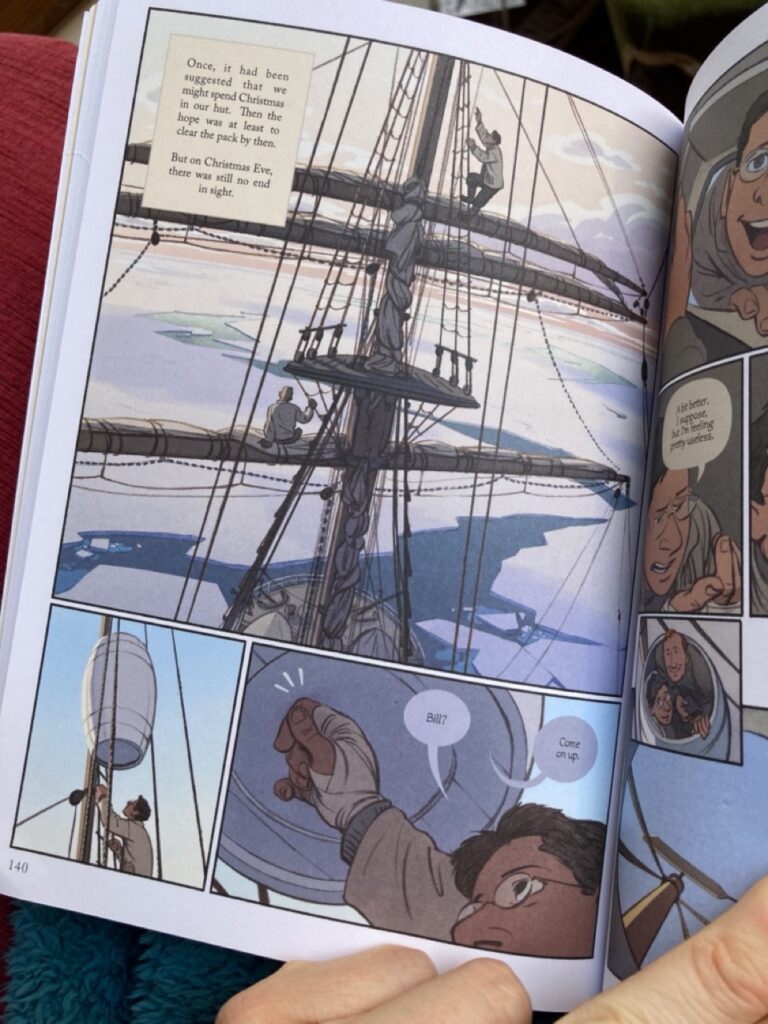
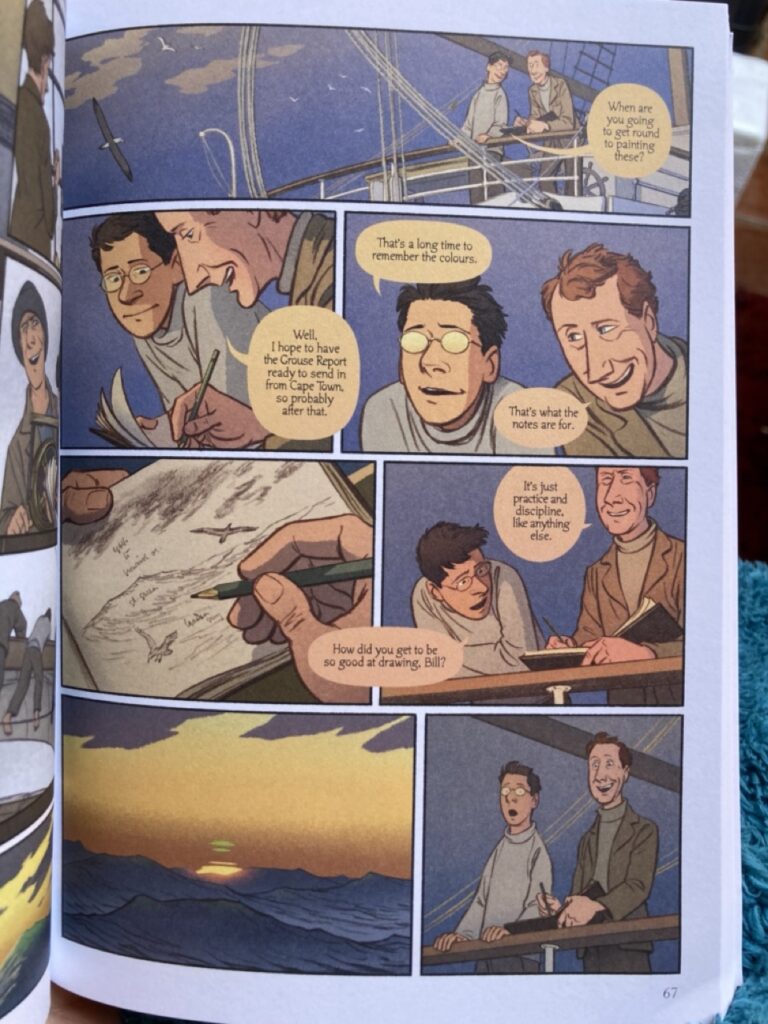
In the microcosm of caregiving, I’m learning this lesson over and over again: it isn’t the systems that make it bearable; it’s the people. It’s Gabriela texting to say she’s bringing over a rotisserie chicken. It’s Jim coming by in an hour to take my dad out for a visit to his favorite coffee shop. It’s Jen holding space for our cohort of young caregivers to show up and commiserate with each other over Zoom because she went through what we’re going through and wants to pay it forward. It’s Hayley texting a loving thought from across the country when I somehow need it most. It’s Sarah picking up my watch from the place in Ventura that I keep forgetting to stop at and then coming to help me build a bed frame. It’s also whoever left a free mattress in the parking lot behind Vons.
I think back on the way I lived through the first ten years of my career and it feels so different. I was bolstered and supported by community, it’s true. I was even asking them for help at every turn to make my books and my work possible! But somehow the ways I’m relying on others right now feel so different. I’m humbled so much more thoroughly by letting people in during this season of my life because it’s not just creative anxiety anymore. That’s peanuts. That’s easy.
This is the real shit.
It’s not freezing to death in Antarctica shit, but some days it feels real close. I’ve feared and loathed the thought of anyone seeing me like this for so long, but time and time again I see that people want to help each other. Or, at the very least, my people want to help me. And my dad’s people want to help me. And my hometown wants to help me.
I just have to let them in.
Got to catch up with the inimitable Matthew Bogart on the phone the other day after an embarrassingly long lull in communication (although his Patreon updates make me feel like we’re good pals just chatting away on the regular, so maybe that’s why I lost track). At one point he said “That’s the entirety of comics for me: turning story into space” and I think that’s a REAL GOOD LINE! I wrote it down immediately because YES! EXACTLY! What a great form of wizardry to practice.
But now I’m thinking about why it is that pictures occupy spatial real estate for me in a way words…don’t?? I’m tired and it’s the end of the day so I’m not going to dig into why right now. Just chucking it into the posterity machine.
Anyway: Matt’s a good dude. The last time I saw him he was letting me borrow his corner rounder during the Pandemic. That’s a real friend.
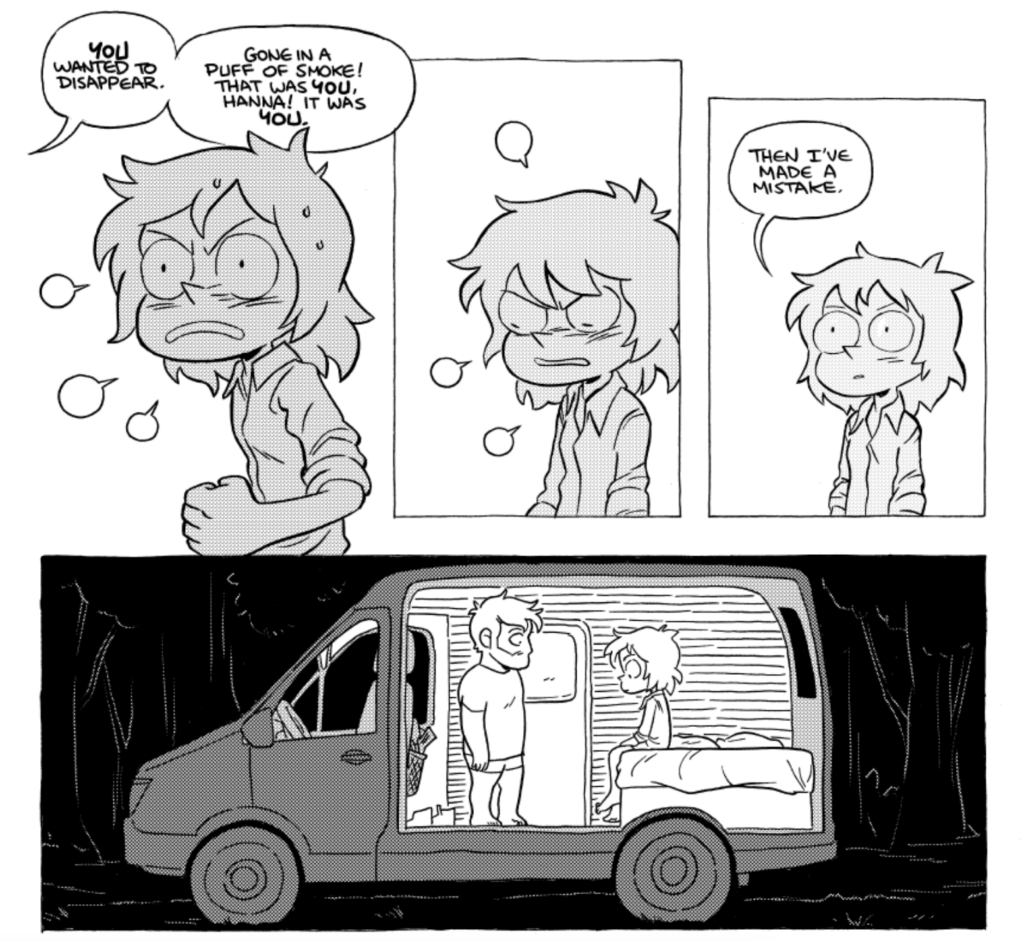
I didn’t always keep up with Octopus Pie during the ten years Meredith spent making it regularly, but every time one of these standalone followup stories comes out, I’m blown away. Seeing webcomics creators approach characters they first started crafting in their 20s with the added life experience of becoming 30-somethings is just…it rules. It’s magical to see characters age as we age, becoming concerned with the types of life transitions and regrets and hopes that meet us with each passing decade.
And even beyond the content: THE STORYTELLING! I yelled when I saw these three panels because they’re magnificent. The tones, the panel borders, the scale, the expressions—all of it comes together to create this perfect denouement after a raging argument. And the van? The fuckin’ long shot crafted from a tiny space that shouldn’t by any rights work the way it does but it works so well??? I love seeing things like this. I miss seeing things like this.
I hear people talk about missing webcomics because Google Reader died, but the truth is there’s still plenty of RSS reader technology out there. There are more webcomics than ever. So why do I still fall prey to that feeling? Is it that I don’t have what it takes to invest in new stories or characters? That the selection has gotten too overwhelming? That I spend all my time making comics so I can’t relax by reading them anymore?
I’m not sure. I just know that reading this reminded me of what it felt like to be a kid in college with a bookmark folder of ten different stories I would gladly immerse myself in every day of the week, week after week, year after year. Stories that made me think I could do this too. Stories made by people who became my colleagues and friends.
Stories that it’s nice to return to every now and again, just to peek through the window and make sure everyone’s doing okay.
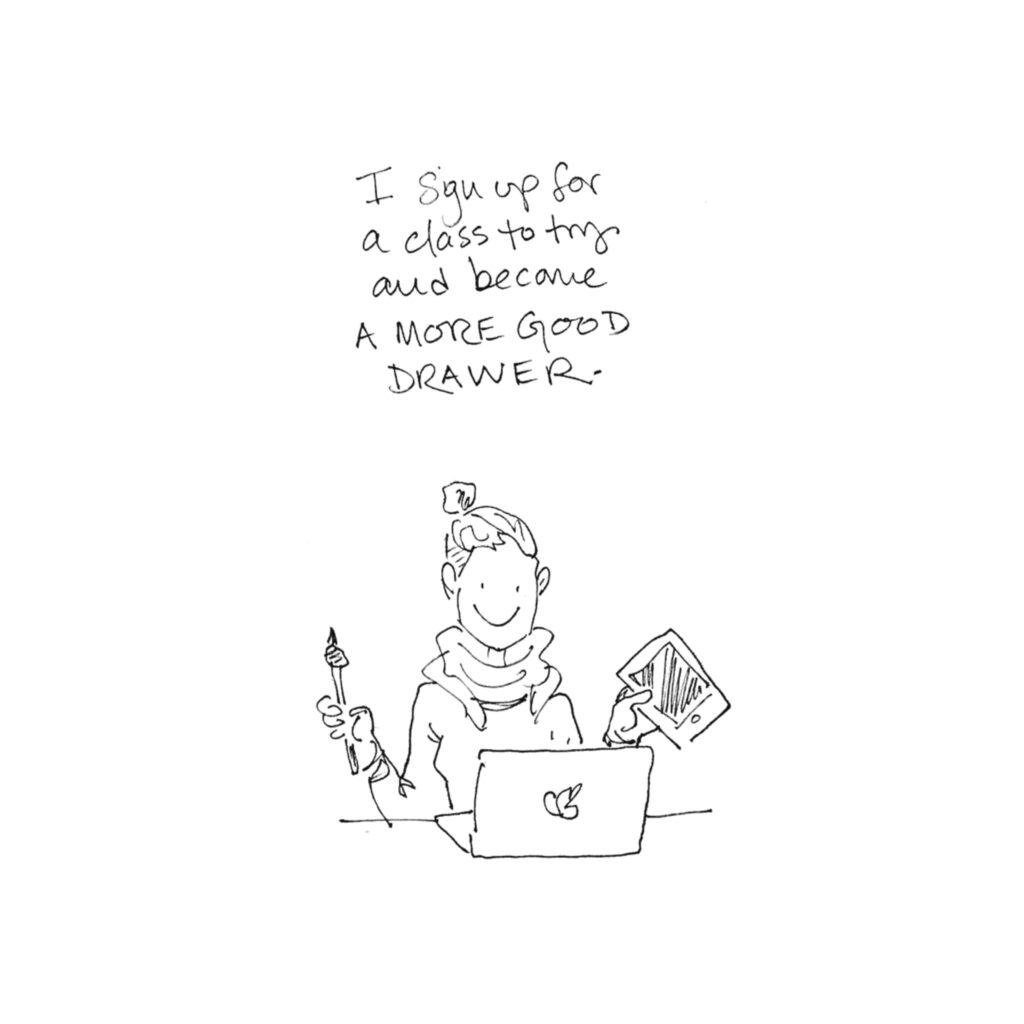
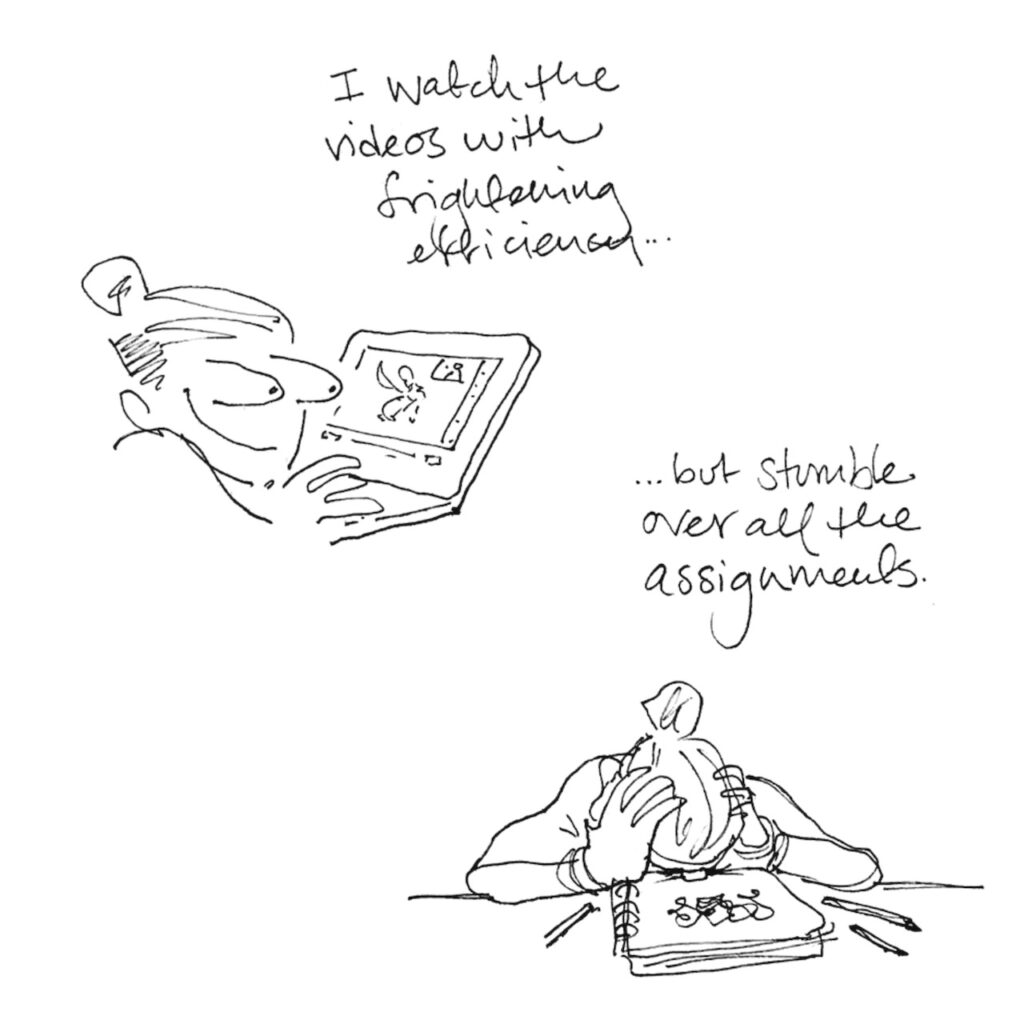
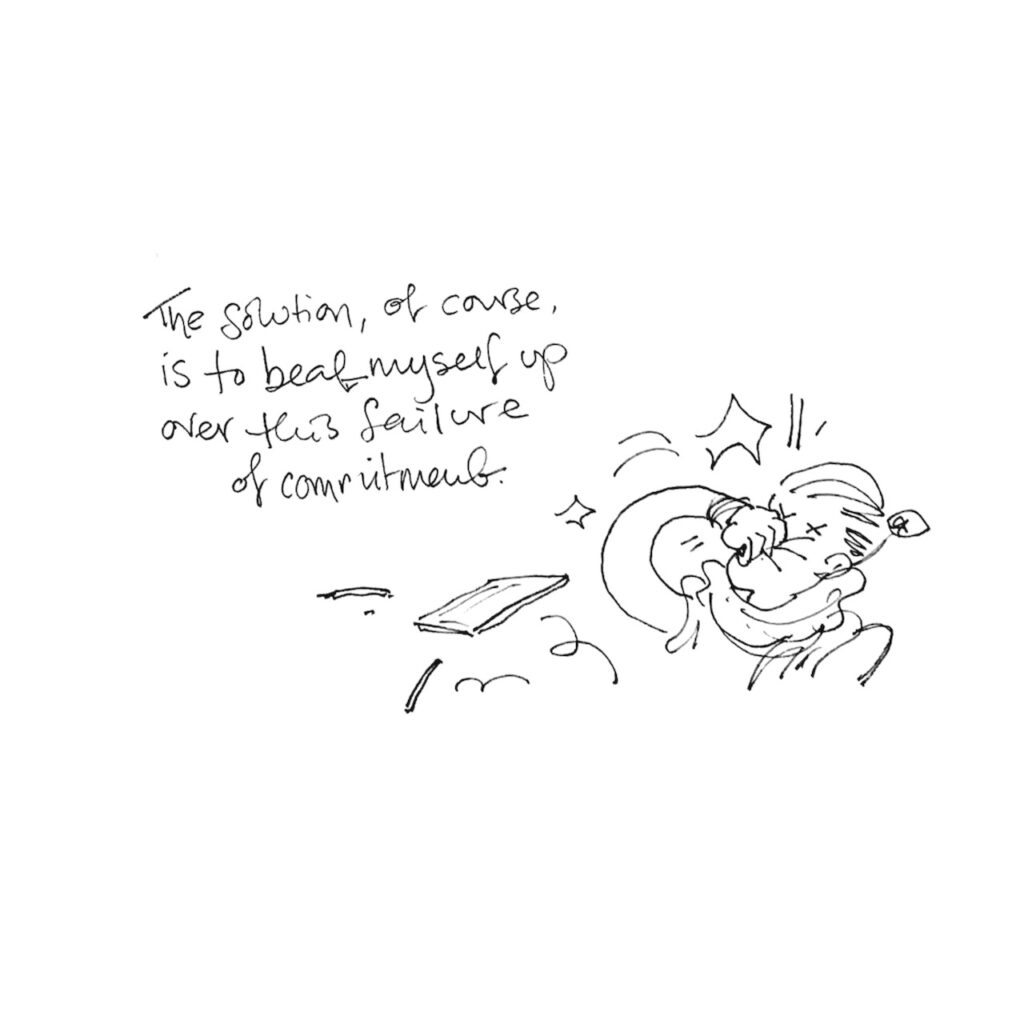
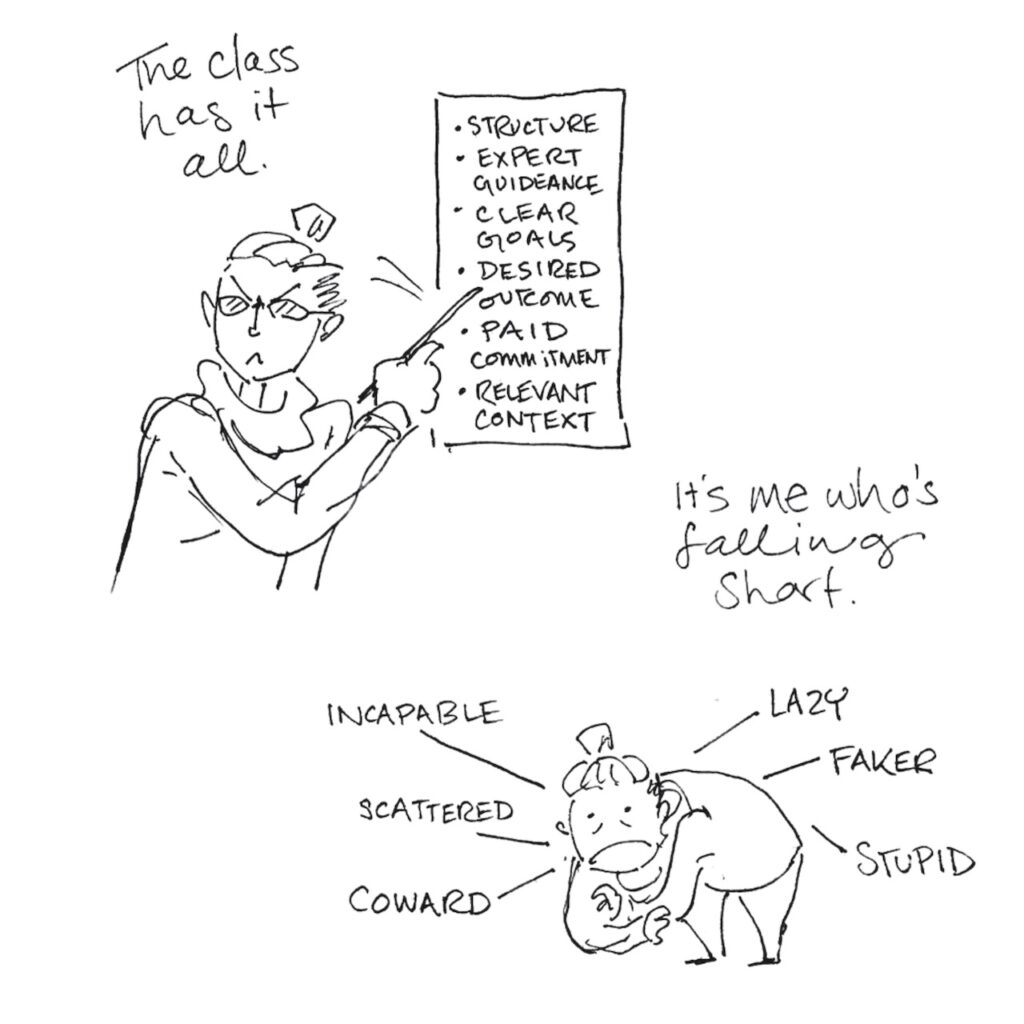
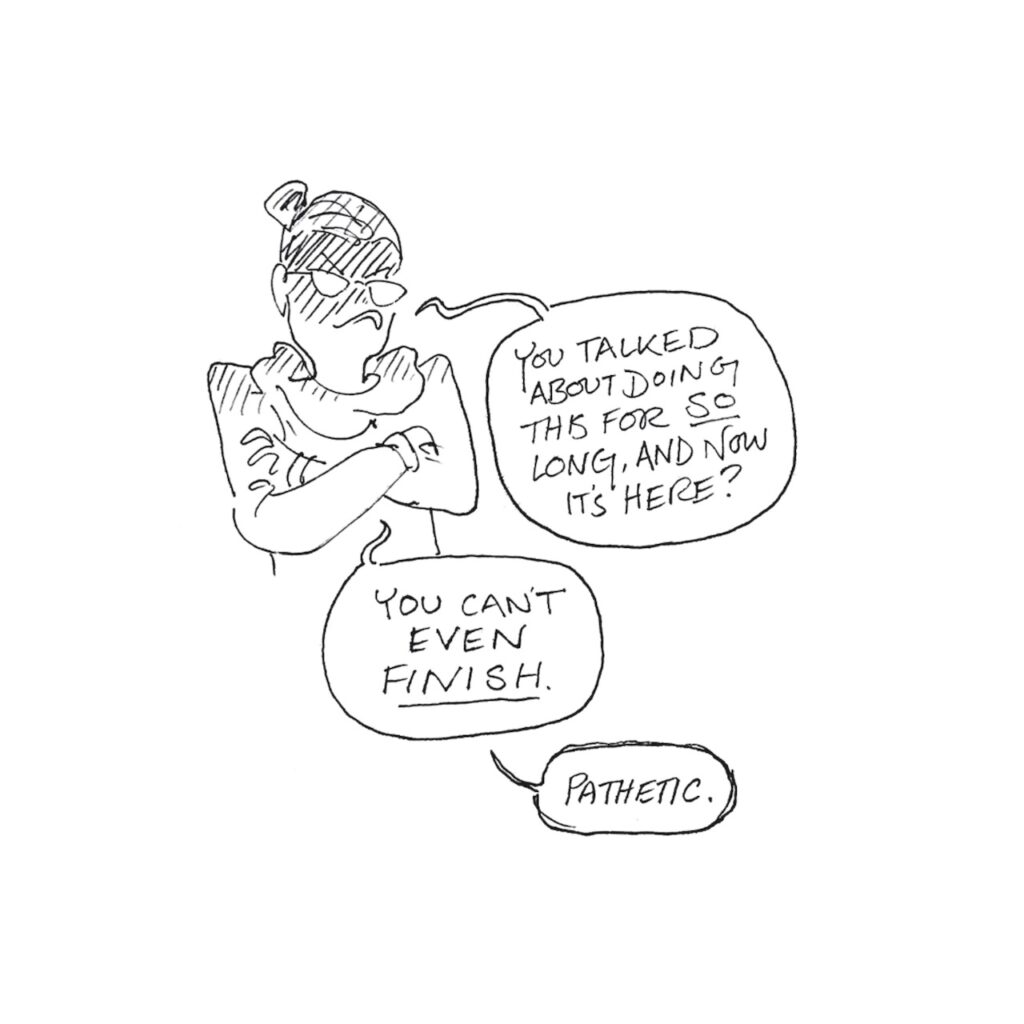
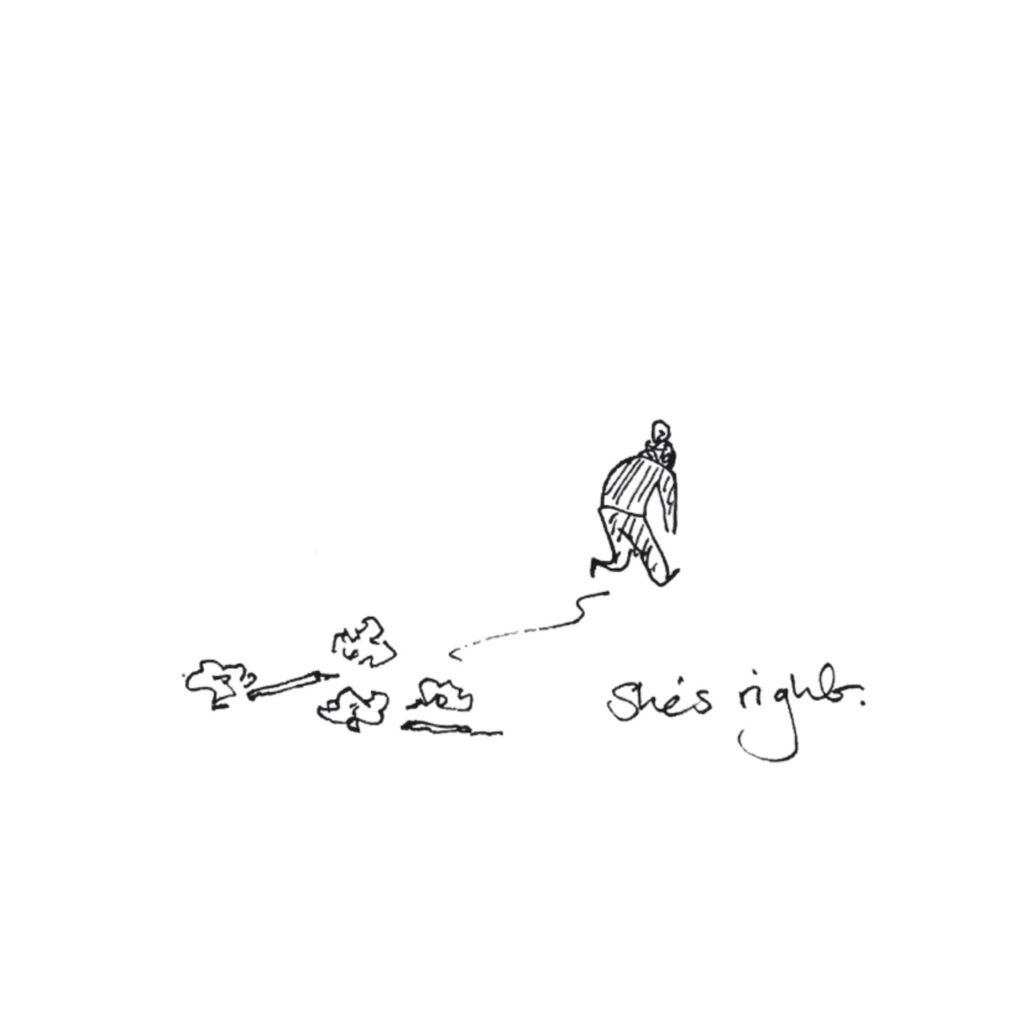
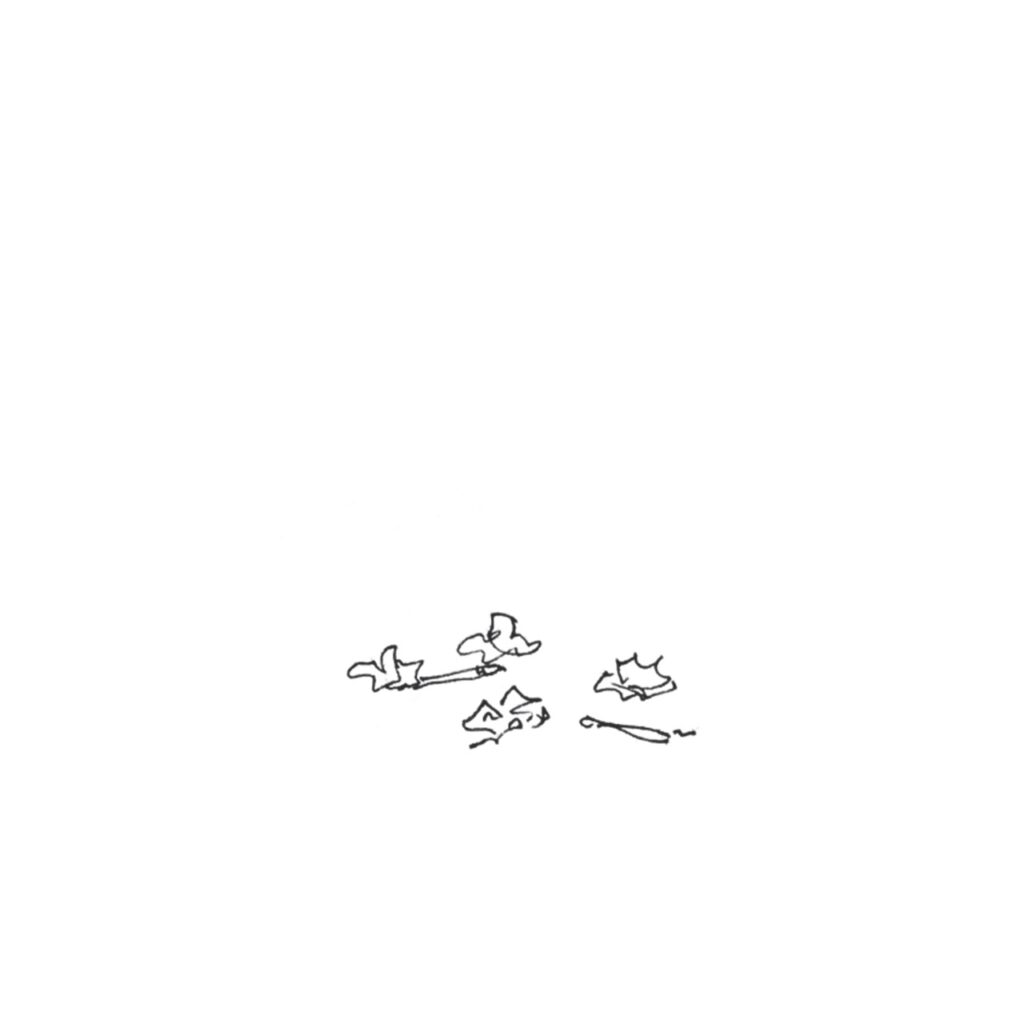
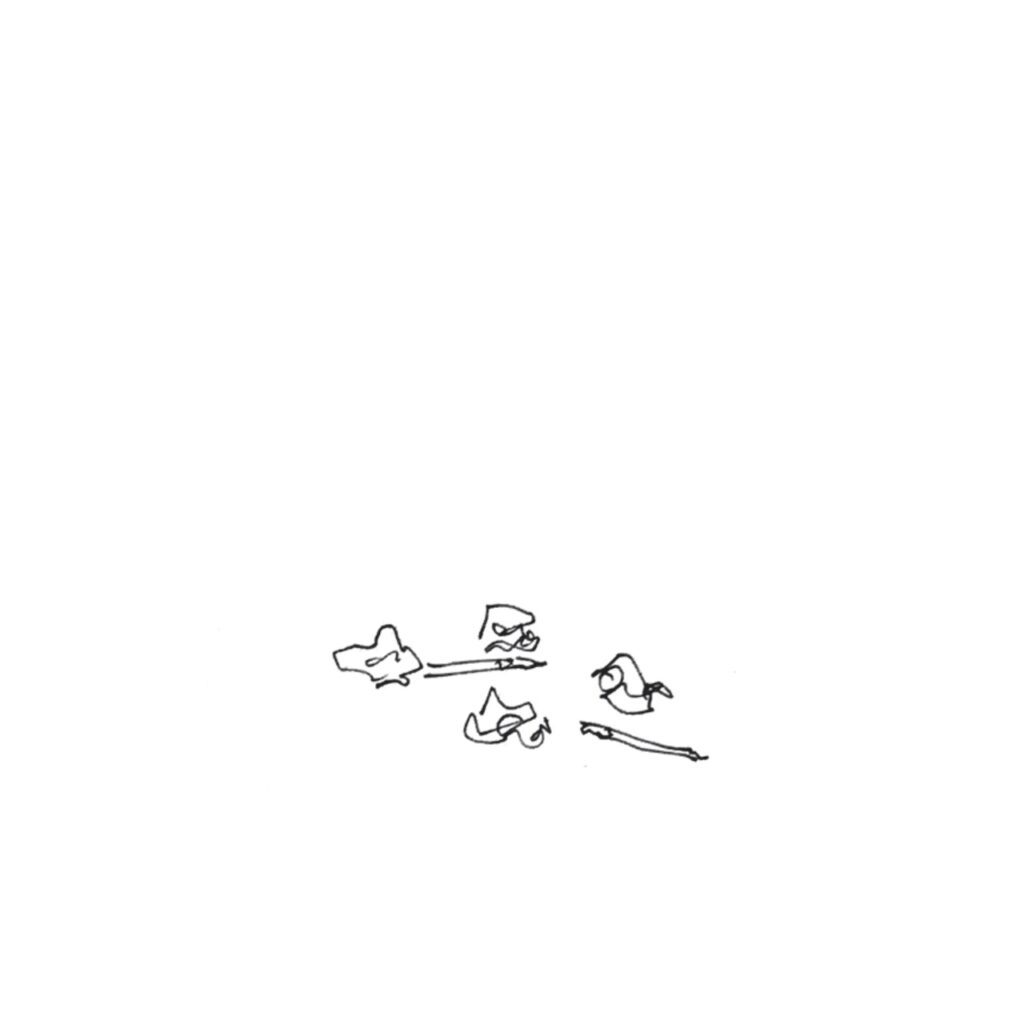
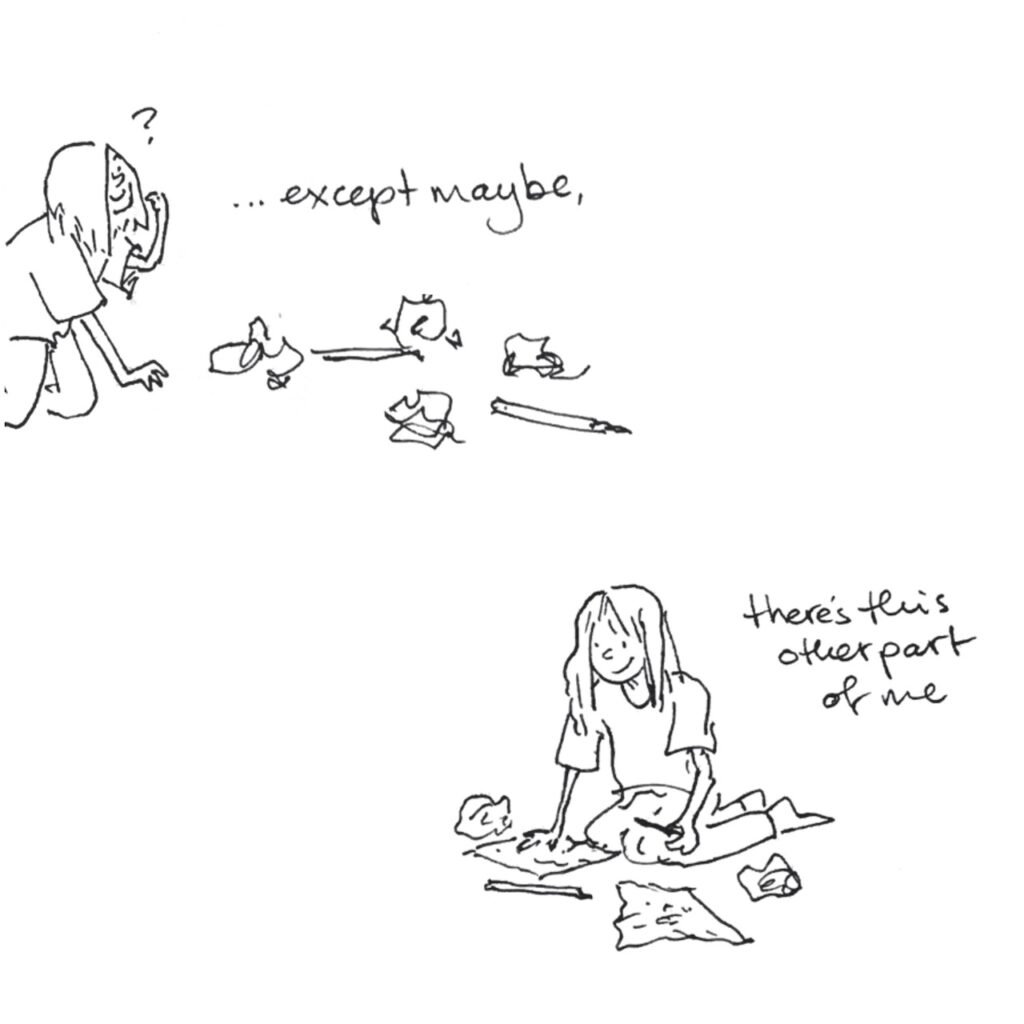
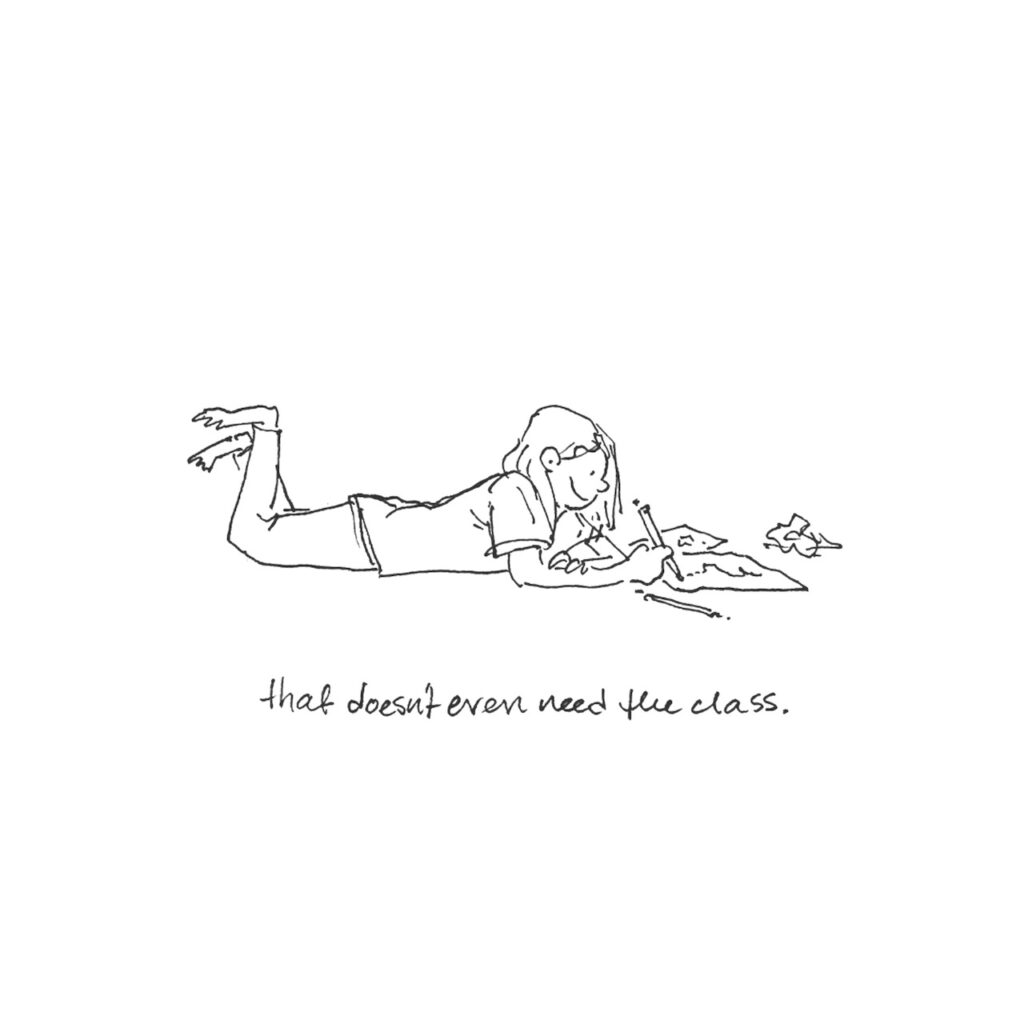
(Haven’t shared a lot of Actual Comics in this new blogging life I’m living. Does this work? Is it better than reading something on Instagram? Who can say. I’m going to pick this train of thought up on Patreon next week, though, so it’s a good time to join.)
Trying not to be precious about year-end stuff right now because I’m feeling stuck, but here’s a big list of things I read in 2021! Reading was hard this year for…well, you know. All the reasons. I needed a lot of comfort food to get through the upheaval of moving home, and for huge swaths of time I felt as if I’d lost access to the part of my brain that thrilled to Alberto Manguel or Le Guin in the first part of the year. I’m still sort of there.
Read a lot of comics (thanks, Danielle’s studio library and also The Actual Library) because I started drawing a graphic novel and it turns out reading more comics helps your brain think in comics??? Who knew. I still feel like I’m scratching my way towards figuring out what really makes a comic work for me. It takes a lot to get me excited about them, which feels somewhat icky as a person who knows first-hand how much fucking time they take. But there it is!
Started trying to track rough start/end dates towards the second half of the year because I got curious. I’ll probably stick with that into 2022.
Bubble and The Liar’s Dictionary both made me laugh out loud. The Creative Habit and Always Coming Home reminded me how I got to be the way I am. I’m sure there are other books I felt feelings about but I’m just going to HIT PUBLISH.
See previously: 2020’s Big List
| Legend | Rough Guide to Ratings |
|---|---|
| 🎭 – Plays 📝 – Poetry 📖 – Books (Fiction) 📓 – Books (Nonfiction) 💬 – Graphic Novels | ❤︎ = Yes ❤︎❤︎ = Oh Yes ❤︎❤︎❤︎ = Oh Hell Yes |
- 📝 An Ocean of Static – J.R. Carpenter
- 📓 The Book of Delights – Ross Gay ❤︎
- 💬 Oksi – Mari Ahokoivu
- 📖 The Djinn Falls in Love and Other Stories – Ed. Mahvesh Murad & Jared Shurin
- 📖 Solaris — Stanisław Lem
- 📖 The Liar’s Dictionary – Elly Williams ❤︎❤︎
- 📖 There but for the – Ali Smith ❤︎❤︎
- 📓/📝 Bluets – Maggie Nelson ❤︎
- 📖/🎭/📝/📓 Always Coming Home – Ursula K. Le Guin ❤︎❤︎❤︎
- 📖 Never Mind – Edward St. Aubyn
- 📖 Bad News – Edward St. Aubyn
- 📖 Some Hope – Edward St. Aubyn
- 📓 A Reader on Reading – Alberto Manguel ❤︎❤︎❤︎
- 📖 Mother’s Milk – Edward St. Aubyn
- 📖 At Last – Edward St. Aubyn
- 🔄 📖 Guards! Guards! – Terry Pratchett ❤︎
- 📓 The Mother of All Questions – Rebecca Solnit
- 🔄 💬 Delilah Dirk and the Pillars of Hercules – Tony Cliff ❤︎
- 📖 The Fellowship of the Ring – J.R.R. Tolkien
- 📖 The Mezzanine – Nicholson Baker ❤︎
- 📓 Big Magic – Elizabeth Gilbert ❤︎
- 📖 The Two Towers – J.R.R. Tolkien
- 📖 The Return of the King – J.R.R. Tolkien (Finished April 20th)
- 📖 Wonder Tales of Seas and Ships – Frances Carpenter (April 22nd – April 27)
- 🔄📖 The Raw Shark Texts – Steven Hall (July 20th – July 27th) ❤︎❤︎
- 💬 Slaughterhouse-Five – Kurt Vonnegut, Ryan North, Albert Monteys (August 4th) ❤︎
- 💬 Lucky Penny – Ananth Hirsh and Yuko Ota (August 4th)
- 💬 Kodi – Jared Cullum (August 6th)
- 💬 The Loneliness of the Long-Distance Cartoonist – Adrian Tomine (August 8th)
- 💬 Girl Town – Casey Nowak (August 9th)
- 💬 My Life in Transition – Julia Kaye (August 9th)
- 💬 Bubble – Jordan Morris, Sarah Morgan, Tony Cliff, Natalie Riess (August 12th) ❤︎❤︎
- 📖 The Accidental – Ali Smith (August 23rd)
- 💬 Don’t Go Without Me – Rosemary Valero-O’Connell (August 24th) ❤︎❤︎❤︎
- 🔄 📖 The Brief and Frightening Reign of Phil – George Saunders
- 📖 Water for Elephants – Sara Gruen (Finished Sept. 8th)
- 📖 All Systems Red – Martha Wells (Sept. 10th)
- 📖 Artificial Condition – Martha Wells (Sept. 10th)
- 📖 Rogue Protocol – Martha Wells (Sept. 10th-11th)
- 📖 Exit Strategy – Martha Wells (Sept. 11th)
- 📖 The Absolute Book – Elizabeth Knox (Sept. 30th? – Oct 17th)
- 📓 The Library at Night – Alberto Manguel (April 22nd – October 19th)
- 📖 Sphinx – Anne Garréta (Oct 28-30)
- 💬 Draw Stronger – Kriota Willberg (Oct 30)
- 📓 Goodbye Again – Jonny Sun
- 📖 The 7 1/2 Deaths of Evelyn Hardcastle – Stuart Turton (Nov. 18th-20th) ❤︎
- 📖 Milk Blood Heat – Dantiel W. Moniz (Nov. 20th-22nd) ❤︎
- 📖 The Devil and the Dark Water – Stuart Turton (Nov. 27th-Dec 2nd)
- 💬 Piece by Piece: the Story of Nisrin’s Hijab – Priya Huq (Dec. 6th)
- 💬 The Legend of Auntie Po – Shing Yin Khor (Dec. 7th) ❤︎❤︎
- 💬 Treasure in the Lake – Jason Pamment (Dec. 9th)
- 📖 The Glass Hotel – Emily St. John Mandel (Dec. 15th-17th) ❤︎
- 📓 The Collected Schizophrenias – Esmé Weijun Wang (Dec. 18th)
- 💬 Tell No Tales – Sam Maggs and Kendra Wells (Dec. 15th-21st)
- 📓 The Creative Habit – Twyla Tharp (Dec. 22nd) ❤︎❤︎❤︎
- 📓 Intimations – Zadie Smith (Dec. 28th) ❤︎
- 📓 I Shock Myself – Beatrice Wood (Dec. 25th – Dec. 31st) ❤︎
